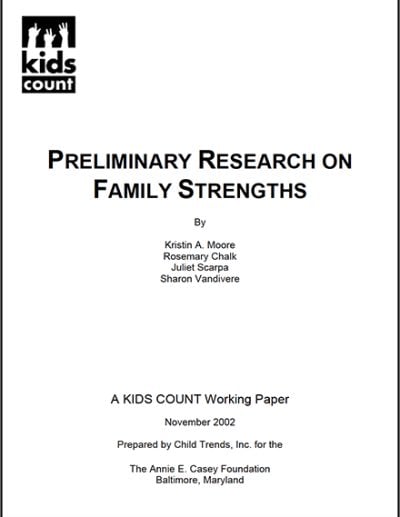Summary
When developing solutions for American families, researchers and policymakers frequently call attention to challenges like poverty, unemployment, violence, divorce and the growing prevalence of single-parent households. Evidence indicates that these factors contribute to negative child outcomes, such as behavior problems, delinquency, teen pregnancy, risky behaviors, or dropping out of school. Yet, other studies have pointed out that — despite these stresses — many families are prospering, strong, supportive and raising children who excel.
A Change of Perspective
By focusing solely on problem behaviors, research studies and governmental reports routinely overlook the successful coping strategies that families employ to manage multiple stressors in daily life. This oversight has helped fuel significant gaps in our understanding of the factors that contribute to successful parenting, family cohesion and family support — especially during difficult times.
Sections Explained
This report, which the Annie E. Casey Foundation commissioned, has three main sections. Section 1 explores the range of definitions, approaches and measures used to describe strong families and family strengths. Put simply: Successful families are able to reproduce themselves by raising children who establish stable and harmonious families themselves.
Section 2 identifies existing research on family strengths and tells how these findings compare to national survey results. The data is divided into two basic categories (family processes and family relationships) and the surveys cited include the National Survey of American Families, the National Longitudinal Survey of Youth and the National Educational Longitudinal Survey.
Section 3 identifies research and knowledge gaps associated with the study of family strengths and calls for developing “better measures to assess family strengths and to collect new data.”







